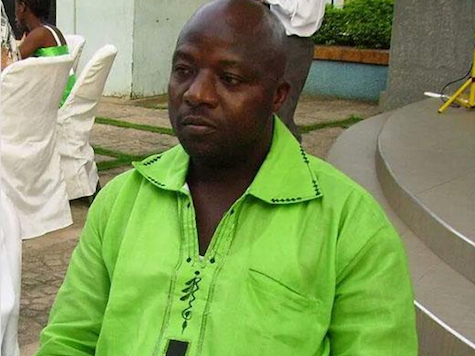Liberian Ebola Patient Knew He Had Ebola, US Trip Was A Desperate Attempt to Survive
A Liberian man who traveled to the United States four days before having contact with a symptomatic Ebola victim in Monrovia "knew he had Ebola," according to his former boss as a FedEx contractor who said he abruptly left his job before the incident.
In interviews with the Liberian Observer, one of the nation's largest newspapers, both Thomas Eric Duncan's former boss, Henry Brunson, and an unnamed coworker agree that they believe Duncan knew he had Ebola when he boarded a plane out of Monrovia with a final destination in Texas. Brunson noted that, having come into contact with a pregnant woman who died hours after her interaction with Duncan, he knew of his disease. “If he were in Liberia, he was going to surely die,” Brunson told the paper, saying he was "glad" that Duncan was in a country with adequate medical resources.
Duncan worked as a driver for Brunson at the FedEx contractor SafeWay Cargo until mid-September. According to the Observer, Duncan was involved in a car accident at the end of the tenure at the company, and, according to workers, "having acquired an American visa, he did not care and never returned to work afterwards."
Another unnamed source, described as a FedEx worker in Monrovia, told the Observer that Duncan knew he had Ebola, as well. "A source at FedEx in Monrovia said Mr. Duncan apparently knew he was suffering from the disease and that his best chance of survival was reaching to the United States," writes author Omari Jackson, "a position that a family source denied, when we sought confirmation." The Observer notes that the departure to America, for the source and others consulted, appeared a "desperate attempt to survive."
In previous interviews with sources in Monrovia who know Duncan, the Observer found a witness who claimed Duncan had decided to "just go" to America after receiving a visa to visit family in the United States. The decision to leave his job and abruptly go to America raises questions about whether Duncan intended to honor the provisions of his visa and leave the United States in the alloted time.
Duncan's direct knowledge of whether he had the disease is pivotal to understanding how rigorous screening measures at airports in Monrovia are, as well as whether any guilt can be ascribed to Duncan for knowingly violating any procedures in said screening. The Liberian government has announced its intention to prosecute Duncan for having left the country, stating that it has documentation in which Duncan claimed to have never come in contact with anyone carrying the Ebola virus and that such a lie is a criminal infraction.
Both American and Liberian officials agree that he did not exhibit any outward signs of having contracted Ebola during his airport screening, though debate remains surrounding whether his symptoms upon arriving in a Texas hospital were sufficiently clear that the hospital should have immediately quarantined him, rather than their initial decision to send him home with antibiotics.
Duncan worked as a driver for Brunson at the FedEx contractor SafeWay Cargo until mid-September. According to the Observer, Duncan was involved in a car accident at the end of the tenure at the company, and, according to workers, "having acquired an American visa, he did not care and never returned to work afterwards."
Another unnamed source, described as a FedEx worker in Monrovia, told the Observer that Duncan knew he had Ebola, as well. "A source at FedEx in Monrovia said Mr. Duncan apparently knew he was suffering from the disease and that his best chance of survival was reaching to the United States," writes author Omari Jackson, "a position that a family source denied, when we sought confirmation." The Observer notes that the departure to America, for the source and others consulted, appeared a "desperate attempt to survive."
In previous interviews with sources in Monrovia who know Duncan, the Observer found a witness who claimed Duncan had decided to "just go" to America after receiving a visa to visit family in the United States. The decision to leave his job and abruptly go to America raises questions about whether Duncan intended to honor the provisions of his visa and leave the United States in the alloted time.
Duncan's direct knowledge of whether he had the disease is pivotal to understanding how rigorous screening measures at airports in Monrovia are, as well as whether any guilt can be ascribed to Duncan for knowingly violating any procedures in said screening. The Liberian government has announced its intention to prosecute Duncan for having left the country, stating that it has documentation in which Duncan claimed to have never come in contact with anyone carrying the Ebola virus and that such a lie is a criminal infraction.




Comments
Post a Comment